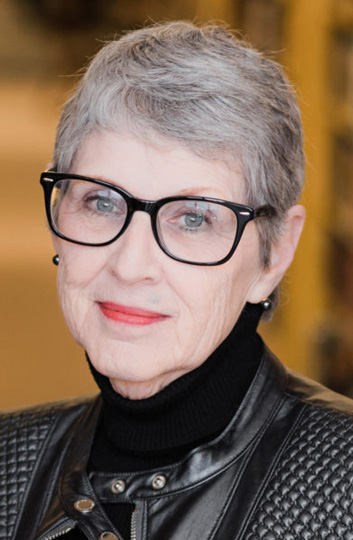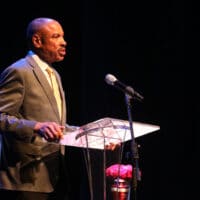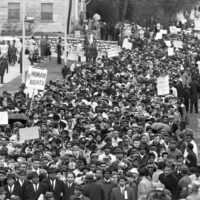At age 4, when the rest of us were playing in the sandbox and learning to tie our shoes, Douglas Charles was paying attention to history in the making. He even remembers the 1976 bicentennial in detail, including a picnic, carnival games, and the blue plastic tri-cornered hat he wore as he watched the fireworks over the local elementary school.

His appreciation for family stories developed at an early age. His grandfathers had stories to tell and Douglas was an avid listener. One served in the U.S. Navy in WWII, flying aboard blimps that searched for Japanese submarines off-shore in California. The other grandfather was a foreman in a western Pennsylvania steel mill, whose father – also a steelworker – died in the 1918 flu epidemic.
In middle school, with the same teacher his mother had had at that age, Douglas became enthralled with a weekly ritual called Great Moments in History. A discussion of Charles Lindberg and his flying adventures captured the boy’s interest and provided him with information he never forgot.
Later on in his studies, he learned more about Charles Lindberg and his position against the U.S. entry into WWII. He was surprised by the information and, intent on learning more about Lindberg’s stance, he did more research.
When he learned that the FBI had investigated Lindberg, he submitted a Freedom of Information Act (FOIA) request regarding Lindberg. The request yielded a stack of information with just weeks left in the semester.
“I still recall the moment bringing a heavy box of FBI files into class,” he said. After he plopped it down, he asked his professor if he could have a deadline extension so he could add this new information to his work in progress.
“I read all the major FBI literature, wrote a thesis-length paper, and then reworked it and submitted it for publication,” he recalled.
The result was his first academic article published in “The Historian” in 1997, when he was in graduate school.
The FBI became his research focus, and that pursuit has led to many publications and presentations in the U.S. and around the world. On Sept. 24, Charles will present the third annual Sid Easley Lecture in the Curris Center Ballroom on the Murray State University campus at 7 p.m. The presentation, entitled “The FBI in Time and Place, Then & Now,” is free and open to the public.
“To understand the FBI today,” according to Charles, “you have to look at its beginnings in 1908. You have to understand it in terms of the priorities of the day.”
In the beginning, the FBI did not have a charter, so it was defined by its leaders, Charles explained. He went on to talk about the organization under the leadership of J. Edgar Hoover, and how the organization has changed since the end of that era.
“In the Hoover years,” Charles said, “the FBI controlled its image and had a strong Public Relations arm. Today, the FBI can’t get away with things Hoover got away with.”
Charles’ research has unearthed a trove of information related to the FBI. For instance, he discovered a policy memo, thought to have been destroyed, about the FBI Sex Deviates Program. The information became the heart of his book, “Hoover’s War on Gays.” Another book, “The FBI’s Obscene File: J. Edgar Hoover and the Bureau’s Crusade Against Smut,” was published in 2012.
All Charles’ works have attracted significant public and media attention. Currently he is enmeshed in two projects: an FBI Encyclopedia, and a comprehensive history of the FBI.
As for the FBI today, Charles believes it is “holding steady,” although he adds, “I’m sure they feel under attack right now.”
Charles is a professor of history at Penn State University-Greater Allegheny.
The Sid Easley Lecture is sponsored by the History Department at MSU. A graduate of Murray State, Sid Easley served as a lawyer, a circuit court judge, a community leader, and a chair of the Board of Regents. He was devoted to many aspects of education at the university, including the History Department. For more information, visit www.murraystate.edu.
(Constance Alexander is a columnist, award-winning poet and playwright, and President of INTEXCommunications in Murray. She is a board member for Hoptown Chronicle. This column previously ran in www.kyforward.com She can be reached at calexander9@murraystate.edu. Or visit www.constancealexander.com.)






